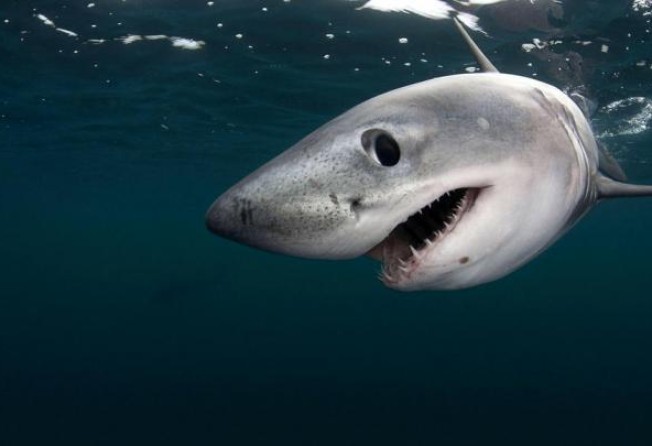
New trade restrictions to affect shark fin imports into Hong Kong
Three more species - the oceanic whitetip, the hammerhead and the porbeagle - set to gain international protection

About 9 per cent of shark fin imported into Hong Kong will require prior approval after an initial endorsement to add three more species to an international treaty to protect endangered species.

The endorsement, made after a majority vote on Monday by 177 signatories at the Convention on International Trade in Endangered Species of Wild Fauna and Flora's (CITES) annual conference in Bangkok, was cautiously welcomed by conservationists as the vote's ratification is still required later this week.
The three shark species are the oceanic whitetip, the hammerhead - including the scalloped, great and smooth hammerhead - and the porbeagle.
The numbers of these species have declined by 70 to 90 per cent in the past three to five decades.
The International Union for Conservation of Nature has also listed the scalloped and great hammerhead as endangered species. In 2004, the CITES signatories listed the great white shark, basking shark and the whale shark in appendix two of the convention, making it illegal for parties to move the listed species without import and export permits from signatories.
Tracy Tsang Chui-chi, senior programme officer of WWF Hong Kong, cautiously welcomed the news of the latest additions but worried that the regulations might be difficult to enforce.
"Unlike the previous three sharks which are relatively easier to be recognised with their larger sizes, the proposed ones could be easily mixed with other shark-fin imports," she said.
She urged the Agriculture, Fisheries and Conservation Department to introduce random DNA tests on imported shark fin to lessen the likelihood that diners accidentally ate the protected species.
Ricky Leung Lak-kee, chairman of the Hong Kong Marine Products Association, said it would be business as usual even after the restrictions were imposed.
"We will follow any rules laid down by CITES, which unlike other non-governmental organisations, does not call for a blanket ban on shark fin," he said.
He estimated that about 8 to 9 per cent of shark fin imported to Hong Kong were of the restricted species. In 2011, the city imported about 10,000 tonnes of shark fin.
Tsang said that in a survey in 2006, overseas researchers had found through genetic tests that about 7 per cent of fin samples from the local market were the hammerhead and oceanic whitetip. About 17 per cent were blue sharks, which are not regulated by CITES.
A spokeswoman for the Agriculture, Fisheries and Conservation Department said the department would closely follow the outcome of the convention meeting.
She said that since 2004, Hong Kong had imported 6.7 tonnes of CITES-regulated shark products - all basking shark - from Norway.
CITES parties also voted yesterday in favour of restricting the trade in Thailand rosewood, which fetches a high price on the international market.
The move was thought to be aimed at growing demand for the wood from mainland China.